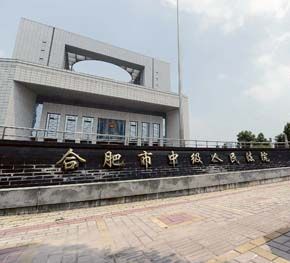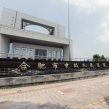
Succession Politicking Probably Limiting Bo Family’s Punishments
Publication: China Brief Volume: 12 Issue: 15

The impending trial of Gu Kailai, the wife of disgraced Politburo member Bo Xilai, on murder charges says a lot about the latest developments in Chinese politics, particularly Beijing’s renewed determination to put stability and “harmony” ahead of political and legal reform. The Chinese Communist Party (CCP) Politburo under President Hu Jintao is giving top priority on preserving a façade of unity in the run-up to the pivotal 18th Party Congress this autumn. This is despite Hu’s much-publicized speech last month in which the CCP General Secretary pledged that efforts would be redoubled to push forward reforms, stating “the party must put its house in order” (People’s Daily, July 23).
On July 26, the official Xinhua News Agency announced power lawyer Gu had been charged with the “intentional homicide” of British businessman Neil Heywood in a Chongqing hotel last November. Xinhua stated “The facts are clear, the evidence is irrefutable and substantial” about the crime, which allegedly was perpetrated with the help of Zhang Xiaojun, an aide of the Bo family (Xinhua, July 26). There was, however, no reference to the widely-reported fact that, prior to his fateful trip to Chongqing, Heywood had told close friends he had helped the Bo couple launder huge amounts of funds overseas (South China Morning Post [Hong Kong], July 27; China News Service, July 26).
This intriguing development has two major implications regarding the Hu leadership’s strategy to handle the Bo case. Firstly, as noted Beijing-based human rights lawyer Pu Zhiqiang pointed out, “if Gu has not been implicated with corruption-related offences, it is likely that her husband Bo will also not be accused of a similar crime.” In other words, since Bo, the 63-year-old son of revolutionary elder Bo Yibo, has only been cited for a “serious breach of party discipline” by party authorities—and not for corruption-related offenses—he need not even appear in a court of law. According to CCP regulations, cadres suspected of breaking party discipline may only be investigated by the Central Commission for Disciplinary Inspection (CCDI)—and such proceedings are usually not publicized (Ming Pao [Hong Kong], July 28; Cable TV News [Hong Kong], July 26).
The possible kid-glove treatment of Bo contrasts sharply with two similar cases of a Politburo member and regional party boss being disgraced as a result of factional infighting in the CCP’s top echelons. In September 2006, 13 months before the convention of the 17th CCP Congress, then Politburo member and Shanghai Party Secretary Chen Liangyu was dismissed from all his party and government posts. At the time of his initial detention, the official media was replete with information about his “economic crimes”—for example, how he had helped several business cronies illegally obtain cheap loans from the metropolis’ social-security funds. Chen was given a jail term of 18 years for alleged corruption-related crimes. Chen, a stalwart of the Shanghai Faction led by ex-president Jiang Zemin, had run afoul of President Hu and Premier Wen Jiabao for reportedly refusing to carry out the instructions of the two senior PBSC members. In 1995, then Politburo member and Beijing Party Secretary Chen Xitong was arrested for graft-related crimes, which resulted in a 16-year sentence after a court trial three years later. Again, the propaganda machinery at the time of Chen’s detention in 1995 provided the public with a barrage of reports about multifarious bribes and kickbacks that the Beijing chief had allegedly received from his business associates. A major cause of Chen’s downfall was a power struggle with then-president and CCP General Secretary Jiang. (Frontline Monthly (Hong Kong), July 1; Ming Pao, April 12). That precious little information about Bo’s misdemeanors has been allowed to appear in public is an indication that the authorities may not want to build a big criminal case against the well-connected princeling. Moreover, the possibility that Bo’s case need not go through the judicial system—and the scrutiny of the media—seems emblematic of severe political and legal retrogression.
Moreover, focusing attention on Gu—and the possibility that Bo might be spared the ordeal of a public trial—tallies with an earlier decision by the party leadership to treat the Bo case leniently. As Ong Yew Kim, a legal expert at the China University of Law and Political Science, pointed out, “There is evidence to suggest the handling of the Bo’s is done according to political, not legal considerations.” Ong noted the leadership’s priority was to ensure a stable atmosphere for the 18th CCP Congress and not to pursue Bo’s more serious crime of organizing an “anti-party cabal” together with senior officials in the party and the People’s Liberation Army (“Beijing’s Post-Bo Xilai Loyalty Drive Could Blunt Calls for Reform,” China Brief, March 30) [1].
Both Western and Hong Kong newspapers reported the Hu-led Politburo Standing Committee (PBSC) had decided in May to characterize Bo’s “crimes” as an “isolated” or “individual” case—not one involving a conspiratorial clique. The major reason is that, having made sure that his foe is politically finished, Hu does not want to upset party unity by pursuing such Bo backers as PBSC member Zhou Yongkang and several influential princeling generals such as Liu Yuan and Zhang Haiyang, the political commissars of the General Logistics Department and the Second Artillery Corp, respectively (South China Morning Post, May 24; Reuters, May 24; Apple Daily, April 25). In fact, during study sessions on the Bo case conducted by Chongqing cadres immediately after the party boss’s downfall, cadres were told to focus on the “individual acts” of culprits such as Gu and not to pay attention to “rumors and discordant noises” about the larger implications of the couple’s crimes. Officials in the metropolis also were instructed to affirm the “correctness of the central party leadership’s principles and measures used in the investigations [of the Bo family]” (Chongqing Daily, April 13; People’s Daily, April 13).
If the Bo case will be handled only by CCDI investigators, his punishment is unlikely to be severe. As things stand, Bo may be charged with trying to intercept the phone calls of senior party leaders as well as failing to maintain discipline among his subordinates. The ousted “warlord” might need to take political responsibility for former Chongqing police chief Wang Lijun’s attempt last February to seek political asylum in the U.S. Consulate in nearby Chengdu. Wang, a former protégé of Bo’s, had apparently fun afoul of his patron by exposing Gu’s involvement in the Heywood murder. The results of the investigation, which are expected to be announced at the 7th Plenary Session of the Central Committee scheduled to take place about one month before the 18th Party Congress, are likely to be little if anything beyond Bo’s expulsion from the party (Oriental Daily News [Hong Kong], July 30; Sina.com, July 28).
In an editorial following the indictment against Gu, the Global Times claimed the trial of Bo’s wife showed everybody was equal before the law. The paper noted the Gu case had “sent a message to society that nobody, regardless of his or her status and power, can be exempt from punishment if he or she behaves unscrupulously.” “A trial held according to law will strengthen the Chinese people’s confidence in the country’s legal system,” the Global Times said, adding that “the law should be the sole principle followed in the [Gu] trial.” The editorial also expressed the hope that “legal departments should disclose enough information regarding the trial to satisfy the public’s demands” (Global Times, July 27; China News Service, July 27).
Doubts raised by judicial experts about how Beijing may have politicized proceedings against Gu and Bo, however, has cast doubt on the CCP leadership’s commitment to legal and political reform. Apart from Global Times, no less an authority than President Hu has spoken out in favor of the continuation of reforms and the imperative of a CCP housecleaning. In a major speech to senior party, government and military leaders on July 23, Hu vowed to continue the forward-looking policies laid down by late patriarch Deng Xiaoping more than 30 years ago. “We will unswervingly go down the correct path that the party and the people have put together through long-standing practice,” he said, elaborating that “We will unswervingly push forward the reform and open door [policy]” (Xinhua, July 23; People’s Daily, July 23).
The party chief also warned the CCP faced immense challenges in its mission to remain China’s viable ruling party. “Under new circumstances, the conditions behind the CCP’s historical role and its rule, as well as the structure and composition of party members have undergone drastic changes,” Hu said, “Risks coming from outside the party have become unprecedented.” To mitigate these risks, Hu indicated, “the party must manage itself in the most stringent manner.” This included beefing up party members’ “ideological construction” and “working style”; firming up organizations and institutions; and, in particular, fighting corruption and promoting clean governance (People’s Daily, July 23).
The way in which the Hu-led PBSC appears to have decided to put political expediency above principles of law, however, shows the CCP leadership has continued to spurn political reform as well as global norms about good governance. The top priority for General Secretary Hu at this point is to ensure that the maximum number of members of his Communist Youth League Faction will be promoted to senior slots at the 18th Party Congress. This can only be accomplished by striking deals with leaders of the other factions, including those who might be Bo sympathizers. For example, Hu has to win over ex-president Jiang, who still has a considerable say over high-level personnel selections. As a protégé of Bo Yibo, Jiang is understood not to favor harsh punishment for Bo Xilai. Hu, who is keen to remain on the Central Military Commission for at least two years beyond his retirement from the Politburo at the 18th CCP Congress, also does not want to alienate generals who are Bo supporters (Apple Daily, June 29; Sina.com.hk, June 27). Horse trading among the disparate cliques has taken place prior to every party congress in recent memory; however, the perpetuation of politics as usual could deal a body blow to the CCP’s legitimacy even as demands for change both inside and outside the party have risen to unprecedented levels.
Notes:
-
Author’s Interview with Ong Yew Kim, July 29, 2012.





